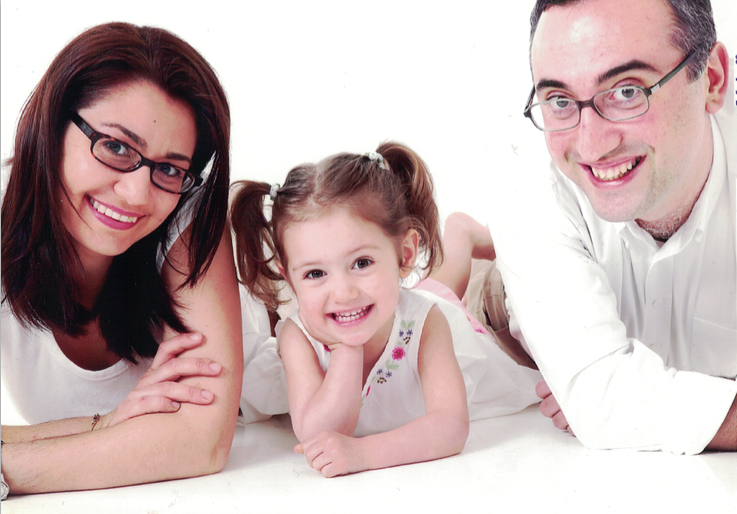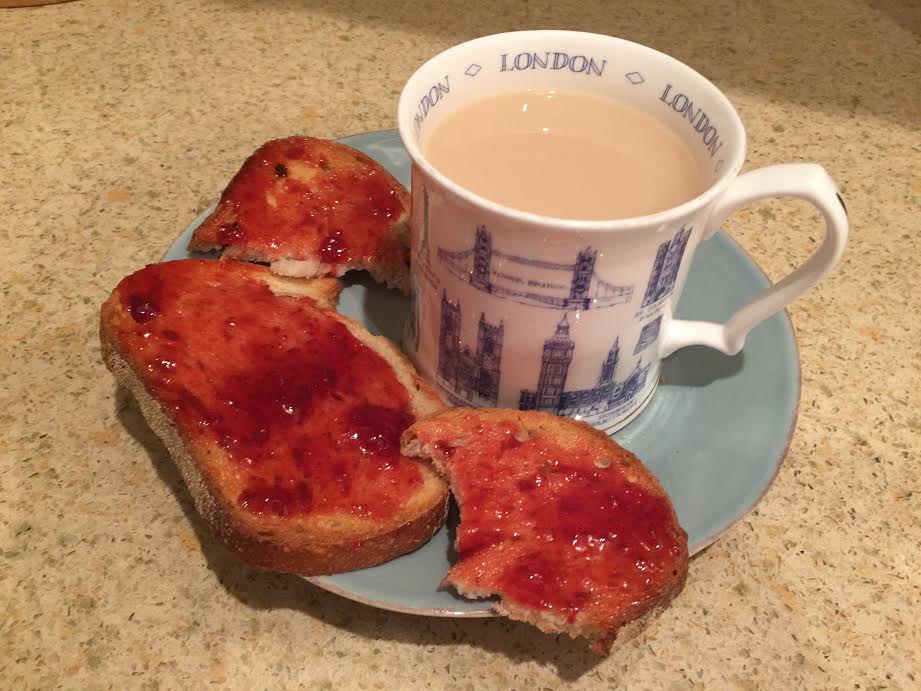
Labor of love: Ilgin; Egem, aged three here; and Tunç. (Photo: Ilgin Yorulmaz.)
“Breath in. Then count: One. Two. Three. Breath out.”
I remember hearing the midwife say these words over and over again. And checking the clock. It showed 7:25 a.m. on a Wednesday morning, on October 11, 2000. Three seconds was all I had before one painful contraction ended and another one began. In between, I inhaled nitrous oxide, otherwise known as the laughing gas. It came through a mask attached to my bed in the maternity ward of Royal Free Hospital in northwest London.
They had brought me there five hours earlier. The midwife, a blond woman in her sixties whose name I would never know, said I was in “active labor phase.” She described it as the cervix dilating from 3cm. to 7 cm. I would describe it as “hell.” My husband, Tunç, and my mother-in-law, Canan, can attest to it.
My day had started rather well. In the morning I saw off Tunç and went straight to work. Heavily pregnant with my first child, I knew that I still had 11 days to go until the expected day of delivery. Tunç and I didn’t know if we would have a girl or a boy. My mother-in-law had insisted on an ultrasound just to determine the baby’s gender, secretly hoping that it would be a boy. She was quite perplexed by our final decision not to do so. “Modern times,” she had sighed.
First thing I did was the paper work for a couple of deliveries to be made later in the month to florists in midwest England. (I was running the London branch of a family pottery business at the time.) The business, back in Turkey, wasn’t doing well, and I felt it produced little profit and no room for growth. With my brother always arguing with my parents, I took it as my responsibility to develop the business abroad, in London to be specific, where Tunç and I had moved just nine months ago.
I had rented a warehouse right next to the legendary Wembley Stadium, and was secretly financing the £500 rent-per-month from our family budget. I was alone in the gigantic warehouse save for an Irish woman with cropped hair, who worked as a receptionist, and a handyman, who constantly talked about his wife and helped me carry heavy stuff upstairs to the storage room.
The first contractions came around 11:30 a.m. as I was unloading a set of green vases. “Weird,” I thought. I never felt anything after that, so I continued loading and unloading products. I finished for the day at around 6 p.m. and locked the warehouse.
Tunç came home early in the evening. I ate very little for dinner and I can’t even remember what it was. Little did I know that this would be my last meal for nearly 12 hours.
It was only 8 p.m. and I felt completely exhausted already. So I decided to make my way to bed. Again, with hindsight, I should have stayed up so that I could control what was coming.
And it came at exactly 11:35 p.m. I woke at 11:35 with excruciating discomfort in my abdomen. It was a wave of pain ebbing and flowing at irregular intervals. I stirred in bed God knows how many times. Not wanting to wake up Tunç, I even pulled a sheet and lay on the floor. But not for long.
I must have screamed so loudly after one really nasty contraction that both my husband and my mother-in-law rushed to my side.
Someone called the hospital. The clock on our bedside blinked 2 a.m. Scared, sweaty and famished, I was hauled into our Honda CRV that Tunç had rushed to the front of our 65 Canfield Gardens apartment.
“Breath in. Then count: One. Two. Three. Breath out.” said the midwife.
“And inhale the laughing gas,” which makes you do anything but laugh during labor. You get high for a few seconds and then the pain starts.
Five full hours of this and I was so thirsty that I could barely speak. That’s when I heard my mother-in-law shout “Ilgin, it’s a girl.” Egem was born at exactly 7 :30 a.m. Her face was a purplish blue. I had my own struggle during the whole episode, but my baby had hers, too, apparently. Her tiny fingers were bloodied. I took one look at her and blacked out.
When I came to myself again in the same room and on the same bed, they were serving breakfast. Just simple, hospital type breakfast: White toast, buttered. And builder’s tea — so called in England, because it’s how builders and plumbers, the real folks, drink their tea. With lots of milk and sugar.
I had been to many exotic parts of the world and savored some of the best delicacies any destination could offer. But on that cloudy Wednesday morning in October, with my little daughter dressed in a yellow outfit, sleeping on my chest, that slice of bread and that unhealthy sugary bomb of a tea was the best meal of my life.

It’s been a hard day’s work. (Photo: Ilgin Yorulmaz.)

Your Comments